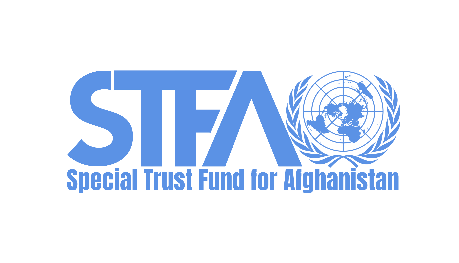
About Special Trust Fund for Afghanistan (STFA)
The Special Trust Fund for Afghanistan is an inter-agency mechanism and inter-agency pooled fund to support UN joint programming in the provision of basic human needs in Afghanistan. As Afghanistan is experiencing fragility and faces challenges on multiple fronts including COVID-19, poverty, food insecurity, droughts, and micro- and macroeconomic impacts. Around 18.5M of Afghan people need assistance with 3.5 million people displaced in 2021 only. Over 97% of Afghan people reportedly to face poverty by mid-2022 as per UNDP's projection.
Considering that, the primary objective of the STFA is to address severe economic instability in a climate of heightened uncertainty throughout the country by implementing the Area-based Approach for Development Emergency Initiatives (ABADEI). It supports programming in the areas of socio-economic recovery for building social cohesion and protect critical livelihoods while strengthening links to peace and humanitarian actions, including basic human needs.
The Fund serves as an inter-agency mechanism to enable donors to channel their resources and coordinate their support for the ABADEI (Area-based Approach for Development Emergency Initiatives) Strategy. The ABADEI Strategy’s joint programmes complement the humanitarian response to meet the needs of people across multiple areas of vulnerability and enhance short-term resilience by preserving the ability of individuals and communities to cope with the impacts of the conflict, and the economic and public health crisis.
The four thematic windows for the ABADEI Strategy therefore work in complementarity with the Afghanistan Humanitarian Fund and the Central Emergency Response Fund (CERF) guided by United Nations Transitional Engagement Framework (TEF) for Afghanistan, the overarching strategic planning document for the UN system’s assistance launched in 2022, focusing mostly on implementing TEF outcomes 2, “By the end of 2022, essential services are sustained that address basic human needs for the people in Afghanistan” and 3, “By the end of 2022, Afghanistan will preserve social investments and community-level systems essential to meeting basic human needs, protect gains to the SDGs, and develop scenarios for future engagement”.
The Fund’s activities cover eight regions of Afghanistan (Western, Eastern, Central, North-eastern, Central Highlands, Northern, Southern, and South-eastern) provisioned under ABADEI Strategy and other sectoral programmes (Health, Energy, Private Sector Recovery, Unconditional Cash Transfers, and Agriculture and Rural Community Livelihoods) for years 2022 and 2023.